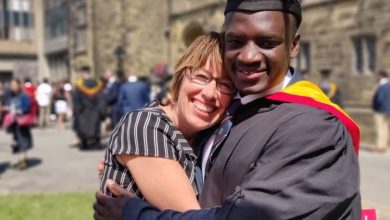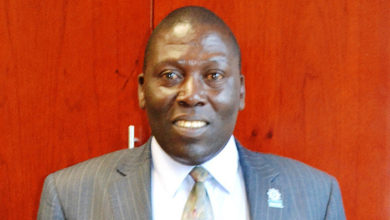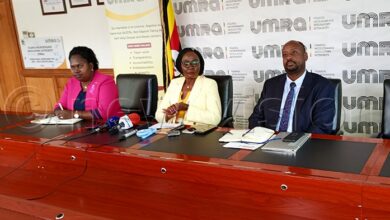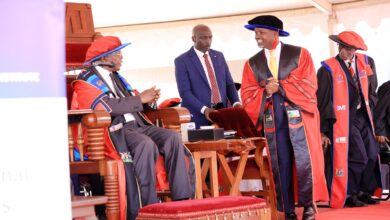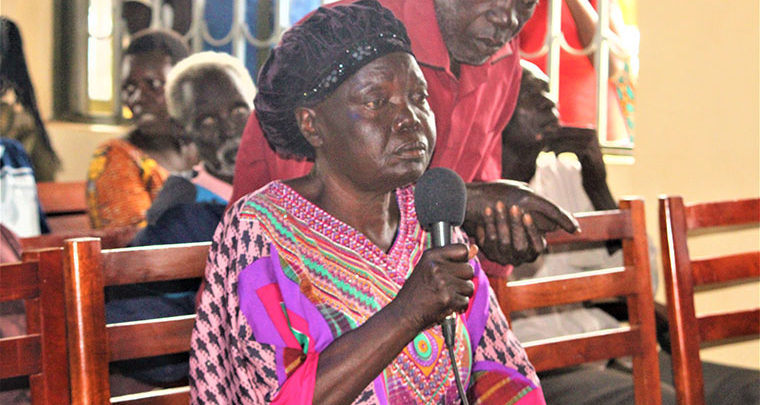
NAKAPIRIPIRIT – After serving the Uganda Police Force diligently for the last 44 years, Rtd Sergeant Mariam Sunday Lokisa knew she would retire happily to her matrimonial land in Nakapiripirit, Karamoja in northeastern Uganda. She knew this was where life would continue from until such a time when the almighty God recalls her to the land of no return.
Lokisa, 61, a widow and the first Karimojong woman to be recruited into police in 1974, had also planned to put up a two bed-roomed house with some money she has been saving as part of her retirement benefit. She had a vision, a vision that would make her eke out a living by farming part of the land to supplement the family needs. A vision that would make her live with communities in harmony.
But as it turned out, it was a different story. When she retired from Amudat district in 2018, the 70 acres of their matrimonial land she was supposed to retire happily to, had been grabbed without her consent by the Nakapiripirit town council physical planner, Hajji Ibrahim Hugo. Hugo is said to have collaborated with the then former Nakapiripirit mayor, Hillary Topoh and the area LC 1 charmin Kalisto Lokol. Topoh, was reportedly demoted to a sub county chief of Nabilatuk following the land grabbing sprees. Lokol allegedly claiming that the land question was a no man’s land and belonged to nobody.
Lokisa and her late husband, Muhammad Lotyang, like many others, had fled the area following the insurgency from the Sudanese Dinkas and the Pokot from Kenya only to find that people were attempting to claim their land.
Available information from the institute administration indicates that the land in question, which was fraudulently grabbed, was sold by the physical planner to the Irish Aid Uganda, who set up a school, Nakapiripirit Technical Institute.
To date, the land where the institute sits on is where the graves of Lokisa’s grandparents, late Rose Amachi, Regina Nakor and a five-year-old child, one Nate, who wasn’t baptized were buried. Lokisa clearly identifies a particular area where one of the classroom blocks stands as the place where they were buried.
As she struggles for justice to get her land back, the former police officer says the whereabouts of the grandparents’ bodies buried in the land, is not known. She thinks that they were probably exhumed and thrown away during the construction of the institute.
While presenting her case before the Uganda Land Commission of Inquiry chairperson, Lady Justice Catherine Bamugemereire in Nakapiripirit, Lokisa narrated how the Nakapiripirit town council physical planner in collaboration with other officials grabbed her land with impunity. She said her tireless efforts to seek for justice, has fallen into deaf years. Instead, she is being shunned for following up her property.
“I have been in court since 2015, trying to secure this land to no avail. When I go to Nakapiripirit Town Council to present my case, the physical planner just chases me away. Even the RDC, Modo, whom I thought could understand my cry, also chased me away from his office. I have been humiliated many times and deprived off my right to own property as a woman, and more so a widow” Lokisa narrated as she broke down into uncontrollable sobs.
“I am not against development. Development is good, and having a school was a good idea. If they had consulted me, I would have definitely given the town council some land for a school and I also remain with some. But if you take away all my land in the name of development, what kind of development is that?” Lokisa added.
Lokisa, a daughter of a lorry driver, and the second last born in a family of 12, has no land to settle in. A good Samaritan has temporarily given a small piece of land to stay in as she fights her way out. As the sun rises from the undulating mountain ranges overlooking the Uganda, Kenya border of Amudat, Lokisa, has to strive to make sure the 14 grandchildren under her care, do not fall victims of food insecurity.
Lokisa is appealing to the Land Commission of Inquiry to enable her to get her land taken over by Nakapiripirit town council back or be given an alternative land where she can settle in and retire happily.
“All I want to settle at my home as I retire. But now I don’t have a home. That is what is hurting me. I have been humiliated, discriminated and abused. I am confused. But when I heard that the Land Commission of Inquiry is coming to Karamoja, I was filled with tears of joy. I am now stronger than when I was crying as I began presenting my case. I pray and I do hope that Justice Bamugemereire’s commission will help me out at this critical time when I am homeless,” Lokisa said.
Flanked by commissioners, Mary Oduka Ochan, Joyce Habasa, Dr Rose Nakayi, Fred Ruhindi, George Bagonza Tinkamanyire, and Robert Sebunya, Justice Bamugemereire, who was on a locus in quo field visit to Karamoja sub region, warned Nakapiripirit town council officials implicated against taking the law into their hands and demanded that the town council submits a report on the matter to the commission within two weeks.
“These are very serious issues that the Commission of Inquiry will not take lightly. This particular case of Lokisa, the widow and former police officer, is of serious concern to us given the gender perspective. I want a report on this matter, and when we summon you to come to the commission, please come to avoid criminal arrest ” Justice Bamugemereire said.
Lokisa, who hails from Kopedur Lodaraja Angididinga village, initially inhabited by the Sudanese Dinka, and now called Nakapiripirit senior quarters, is a case study of one of the many women suffering quietly because their voices and cries, cannot be heard, but are suffering from the effects of inequality and discrimination.
Globally, and in Africa particularly, women’s right to equality, access to, use of and control over land and other productive resources, have been hampered by inadequate legal standards. From large-scale land acquisitions that displace communities without due compensation, to the unplanned urbanization that forcibly evicts people living in informal settlements without any compensation, and discriminatory cultural attitudes and practices at the institutional and community level, women are more ruthlessly affected by land tenure insecurity due to direct and indirect discriminatory laws and practices at the national, community and family level.
A Food and Agricultural Organisation (FAO) report on “Why gender is access to land” contends that gender differences in land tenure should be recognized if land objectives, such as increasing land productivity, providing affordable housing, or promoting sustainable resource management, are to be met.
“There is a need for land tenure policy frameworks that explicitly address gender inclusive access to land. Without specific attention to gender inclusiveness, important segments of society may be excluded from the benefits of land administration, management, and development schemes” the FAO report said in part.
Equitable access to land is a human rights issue. The UN Economic and Social Council Commission on the Status of Women states, “land rights discrimination is a violation of human rights.”
Women’s land rights are critical to democracy, peace, justice, sustainable development and security for all. Secure land rights for women set off powerful, continued ripple effects that go a long way toward realizing gender equality and a range of critical Sustainable Development Goals (SDGs) and human rights.
The Uganda Land Commission of Inquiry was constituted in 2016 by President Yoweri Museveni to investigate and inquire into the law, processes and procedures by which land is administered and registered in Uganda among other roles.
It was constituted at the time when Uganda was grappling with increasing cases of land wrangles that resulted in bloodshed. Initially, the commission was supposed to work for six months but its term was extended following the high demand and backlog of numerous cases that were registered.
SOURCE:The Observer
